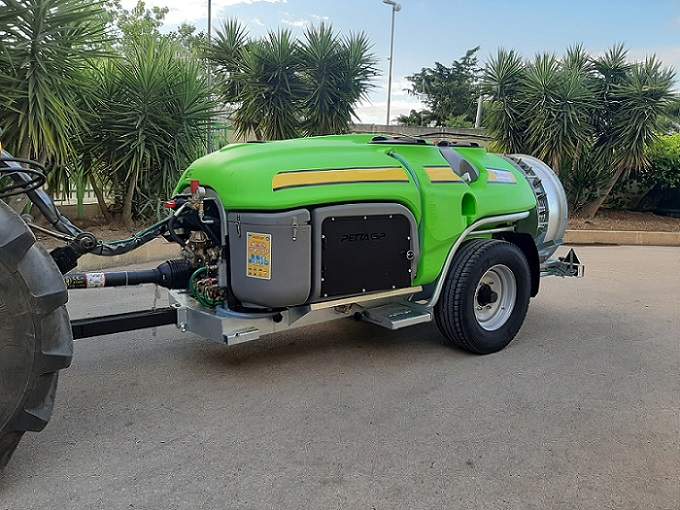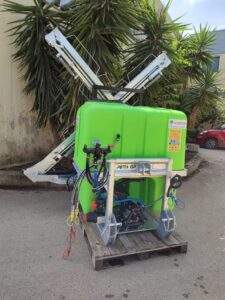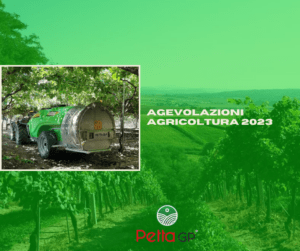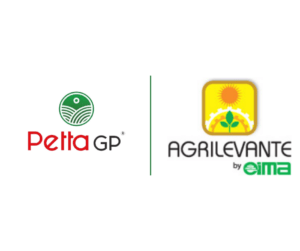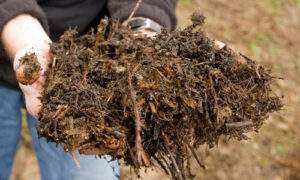Sprayers are vital for agri-food production, and just as it is important to choose the right machine for your soil, maintenance, especially tank cleaning, is vital for both results and costs for farmers.
In fact, cleaning tanks is not only a mandatory practice regulated by law, it is necessary to avoid the mixing of agropharmaceutical products that will be diluted. The choice followed by several operators in the sector, in order to facilitate this type of operation, was to use the new polyethylene tanks, whose advantages are linked to the completely smooth surfaces, which unlike fiberglass (increasingly disused and not fully compliant with directives) avoids the sedimentation of the agrodrug on the walls themselves, with benefits for both the operator and people.
In fact, the lack of maintenance of the tank can produce risks for the environment and for people who could consume food products not treated in an optimal way.
The cleaning of the tank with regard to the regulations is regulated by a European law, 2009/128/CE, and implemented in Italy with the d.lgs. no . 150/2012.
The sanitization operations must be carried out by the operator, subject to compliance with current regulations, and always using the devices of individual protections (PPE), at the end of each use of the machine.
Why cleaning the tank of sprayers is important
In addition to the rules governing the cleaning of the tanks of atomizers and weeding groups related to the safety of the environment and people, the cleaning of the tanks is also linked to practical use. In fact, part of the water and plant protection solution ends up on the machine itself, and a part remains in the tank.
Failure to maintain and clean the tank can lead to:
- Administrative detention of the vehicle
- Incompatibility between the chemistry and physics of pesticides with the consequent failure to yield the agrosanitary product
- cross-contamination
- Clogging of the pipes and consequent decrease in the flow rate of the jet
A mixture of several phytosanitary solutions, besides being ineffective, could lead to harmful effects on the tool, on the cropswith consequences for the final consumer.
The machine must always be strictly cleaned inside and outside to prevent mixture residues from clogging the jet, thus wasting the solution, also leading to economic damage for the agricultural entrepreneur.
Maintenance operations that can be performed by the operator
The agricultural operator can carry out in full autonomy, in compliance with the laws, the cleaning of the medium, whether it is an atomizer or a group of weeds. The tasks to be performed include in general:
- Filter control
- Filter cleaning
- Filter replacement
- Nozzle control
- Direction control of the nozzles
- Nozzle cleaning
- Nozzle replacement
- Nozzle flow verification (through the appropriate bodies)
- Check the integrity of the pipes
- Sealing and pressure control of the fittings
- Lubrication of moving parts
- Accurate washing of machine exteriors
- Accurate washing of the inside of the tank
- Zero pressure in the regulator (end of season)
When the treatments require the same product for several days, a summary washing of the cask is allowed, while when the treatment requires a new product it is mandatory to remove any residual type.
Washings can be carried out with hand lances or with car wash systems (where present).
To avoid environmental damage, it is advisable to clean the machine on a waterproof pad and with a suitable water drain or at authorized centers. Washing in the field is allowed only away from sensitive points or water collection, preferably in a plot of land far from the crop.
All operators should be reminded that it is mandatory, in order to protect the safety of motorists, to clean the agricultural vehicle before entering the roads for motor traffic.
